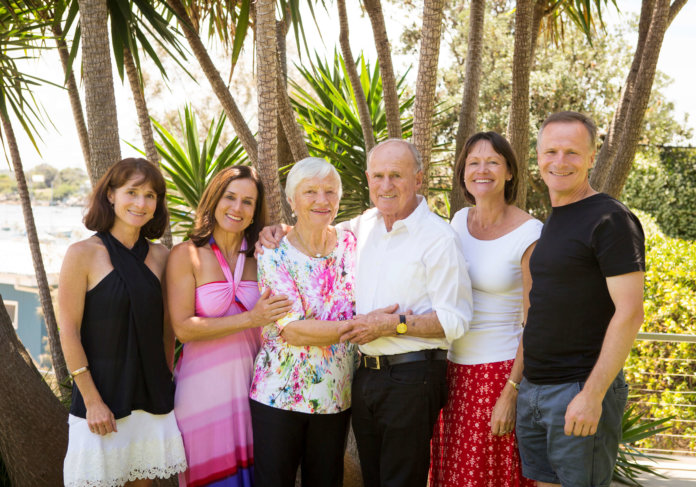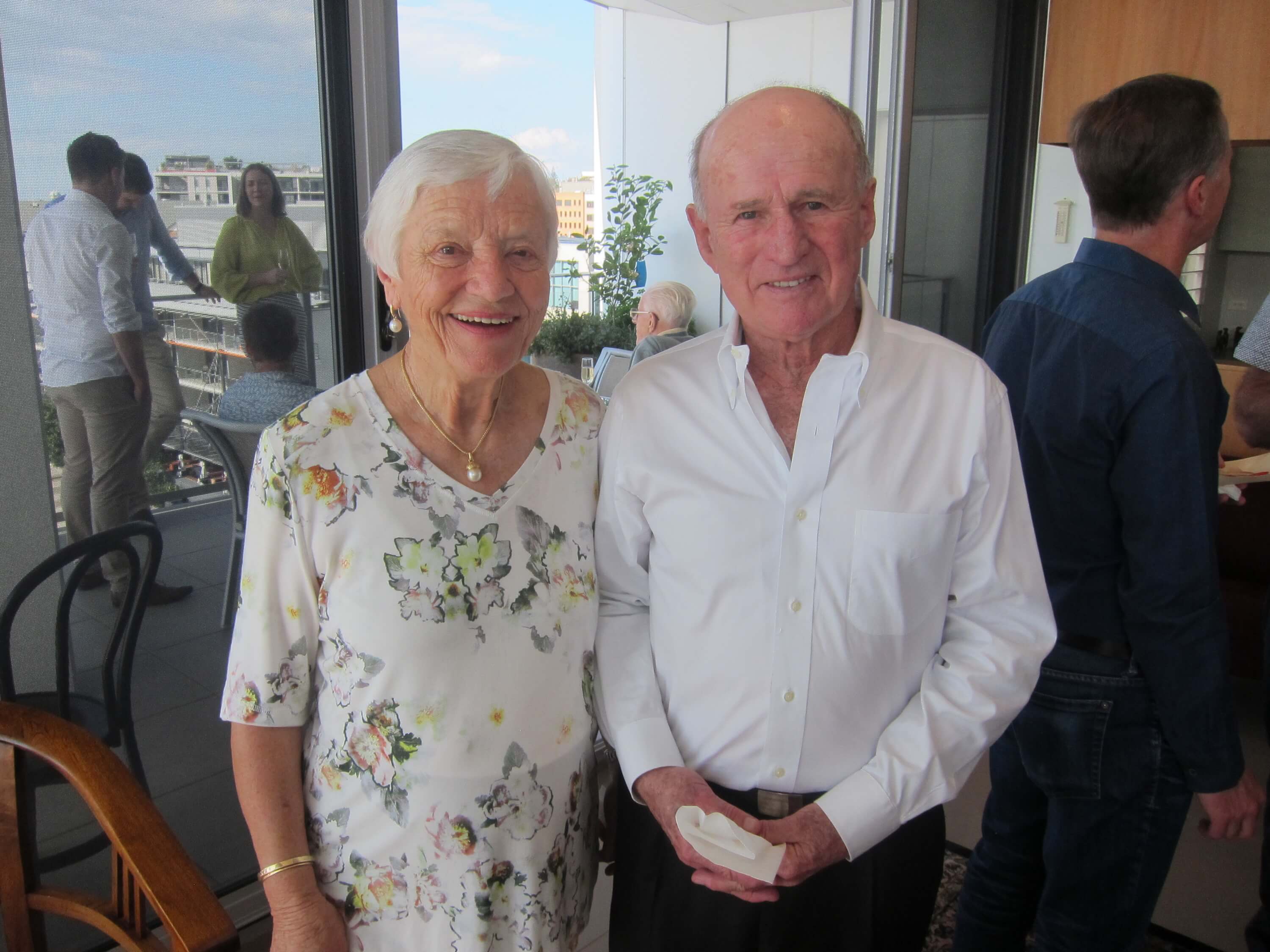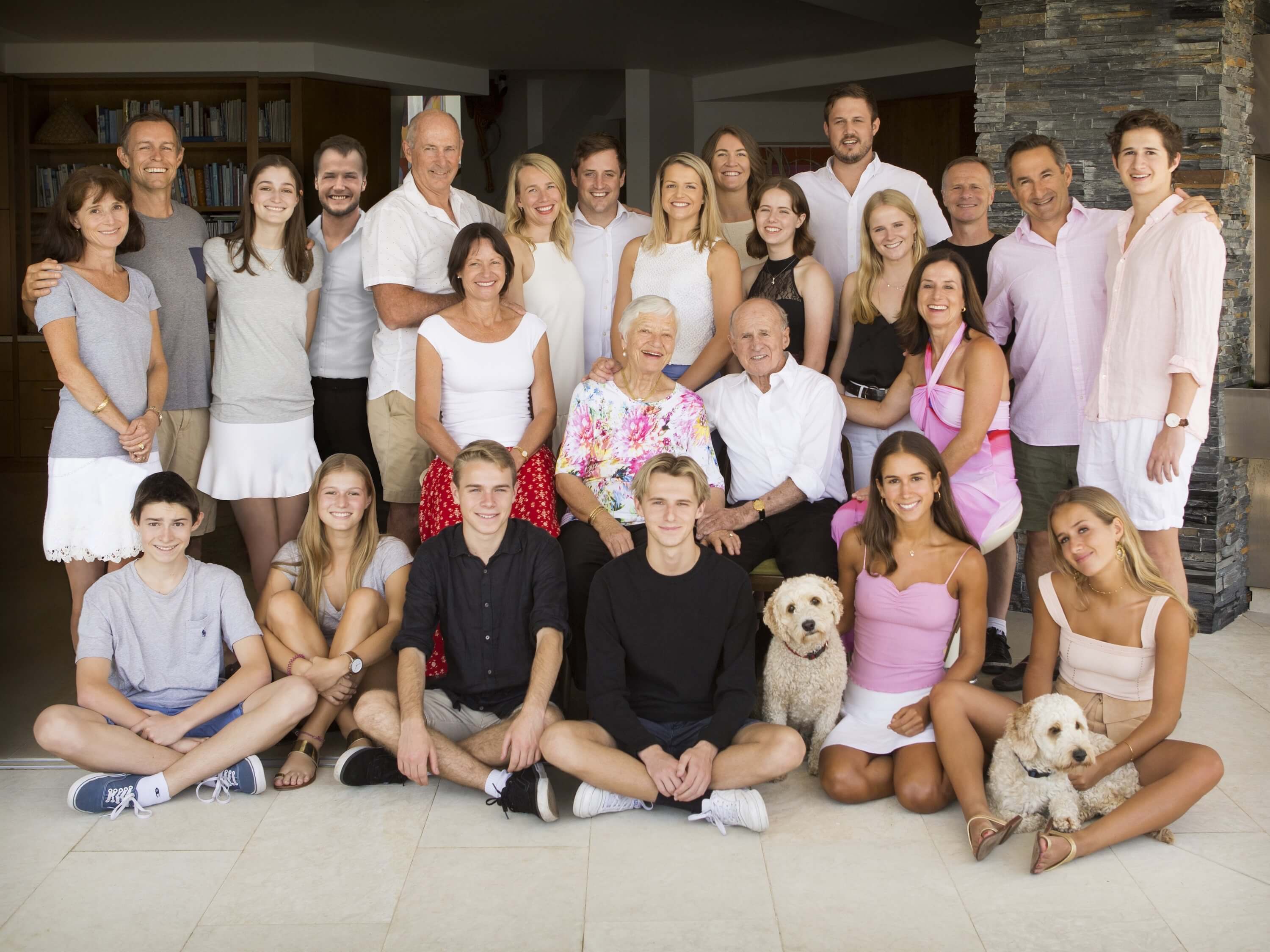
This content is brought to you by the Family Enterprise Case Competition (FECC), the world’s only case competition focused exclusively on family business.
When Richard Owens’ grandfather passed away prematurely at 54, he would have never imagined that the story of his family business – by then a growing portfolio of grocery stores and other property investments – would become a family business case study taught around the world.
There was conflict in the Owens family, and the period that followed the founder’s death was nearly disastrous. The founder’s sons could not agree on direction, and so the grandson, Richard Owens, was forced to intervene partitioning the business between three different family factions.
From there, Richard Owens was able to build his own supermarket empire, which he later sold to one of Australia’s largest retailers in 1988.
Since then, Owens has dedicated himself to educating students on the financial impact of family conflict and imparting practical techniques to avoid it. As the Executive-in-Residence position at the IMD business school in Lausanne, Switzerland, Owens felt compelled to share his family’s unique story, and over the last twenty years, he has taught the case around the world.
Owens is an honorary professor at Bond University in Australia. He has taught for many years at the Kellogg School of Management at Northwestern University, Harvard Business School and IMD.
Tharawat Magazine sat down with Richard Owens, executive, educator and philanthropist, to talk about how he applies his lessons to his management practice, the nature of family business education and the importance of giving back to the community.

How did R.O.I. Properties come to be?
It all started with my grandfather. He had a general store in a country town with his wife and three boys. Unfortunately, my grandfather died when he was only 54, and that left his three sons, who were still in high school, to run the family business.
Eventually, during a period of global downturn, the middle and the youngest son – my father – fought over whether to build the business or try to defend it. The conflict worsened when my generation entered. After years of fighting, I had to partition it amongst the three family groups.
I bought a few grocery shops and, from there, started a new business of my own. Over a period of ten years, I built a large supermarket company with a small group of executives and eventually sold that to the largest retailer in Australia. That was in 1988, and it marked the start of R.O.I. – the company I run now with my children.
Looking back, how hard was it to let go of the original family business?
I didn’t know my grandfather, but I do know a lot about him. I’ve got photos of him and lovely testaments from when he was working as a store manager. He must have been a fine man. I think my father and his two brothers were fine people too; it’s just that when the next generation came in, there was too much competition. That was the root of the conflict.
I tried everything that I could to keep the family business together and pacify the warring brothers, but eventually, we had to partition it. Negotiations took quite a long time, and to achieve our goal we had to bypass the older generation and get the younger one to agree on a solution.
You’re no longer involved in the day-to-day operations of R.O.I. at the moment. When did you decide to hand that over to the next generation?
Eventually, I just knew it was time to get out of their way. I have four children, three girls and one boy. All of them went to university and gained experience outside the family business before joining. As soon as they had the expertise, I knew I should step aside and let them manage the company.
How many members of the family are involved with R.O.I.?
Only one, our son, is directly involved now. The three girls decided they had strong maternal instincts – between the four children, I have 14 grandchildren now. They’ve been raising their children and helping them with their education, while my son has been running the day-to-day operations as CEO.
How is R.O.I. structured? Do you gather as a family council?
Yes, we do. Back in the old days, we used to advocate family councils, but it was to do with ownership as much as family. Now we have an owners’ board for the business and a family council for the wider family. The council is where the entirety of our family meets. This includes all the children as well as the grandchildren and in-laws if they want to attend. The grandchildren usually start to get interested in what’s happening with the family business by about 15 or 16. If we need to discuss numbers, we do it with the owners’ board, which meets a couple of times a year. It has worked well this way for the last 15 years or so.

How personally involved are you these days?
As I knew I had to retire to something and not from something, I decided to get involved in the wine business. I bought an old winery and planted a vineyard away from the head office. I felt I should keep my nose in but my fingers out, and I do this by being chair of the board — it’s a philosophy I apply to my other advisory positions.
What part of your journey resulted in you working at IMD?
When the family business was partitioned, I said to my brother and sister, ‘We should not have to go through what dad’s generation went through. We should do what we can to become independent in our own right and between ourselves.’
We agreed to become independent. The independence also gave me freedom to build, and then sell my business without any family interference.
When I was invited to be an Executive-in-Residence at IMD in Lausanne, just after I sold the supermarket business, I learned about family business for the first time. I wrote about family business principles, helped start the Family Business Network (FBN) with some co-workers, and we had a case study on my family written.
This experience got me excited about family business education. Learning that you can organise your family as well as your business through the implementation of simple governance structures was a revelation to me. When I returned to Australia to work on my own family business, that was my focus.
You’ve taught your family’s case in some of the most prestigious business schools around the world. What do you think of family business education today?
I think family business education has moved from continuity, succession and conflict to wider issues – from narrow and elementary topics to something a lot more complex, mainly through experiential learning.
These days, the appeal lies in helping others avoid making the mistakes my family made in the past.
Since my time at IMD, my understanding is that many of the major universities in the United States have started to work on research and education around family businesses. The Wall Street Journal’s article applauding family businesses for their superior rate of return on investment acted as a catalyst, causing universities to sit up and take notice.
The aim now is to persuade universities to embrace family business education into the mainstream of their business schools – even if just as an optional course of study.
You’ve also been awarded for your philanthropy. How important has it been in your experience of coming out of the day-to-day business?
I used to do a yearly balance sheet on myself to assess what I was spending my time on. In doing so, I found out that a lot of my time was dedicated to family business education and philanthropy.
When I moved onto the board of our own family business, a lot of my time went into the wine business but also into supporting different organisations. I had already been on the board of Opera Australia and the Institute for Deaf and Blind Children for 20 years each. I also chaired a medical research institute associated with the University of Newcastle and was involved at the board level of several other charitable and community organisations. I haven’t been idle – I get a lot of satisfaction from these activities.
To me, though, philanthropy has always been two-pronged. If you give money, you also have to give time. I like to think that I’m able to assist the organisation in other ways besides money and that usually involves becoming a member of the board.
Do you think that’s been beneficial for the business?
Definitely. It’s a two–way street. I’ve learned a lot from other people and from the various organisations I’ve been involved in. I hope I’ve added value to them as well. I think I’ll know when I don’t.
It’s also allowed for more objectivity when it comes to giving up control.
Letting go and financial security are critical to the succession process. I always teach that unless your father or mother is guaranteed of certainty – and by that, I mean financial security for the rest of their life – and until they have something else to occupy their time, they’re going to be looking over your shoulder forever. They often won’t let go. That’s one of the most significant problems family businesses face. As I said earlier parents have to retire to something and not from something as well as have financial security.
How do you feel about your Owens Family business case study now?
It’s quite an old case now, and I’m sure there are more contemporary examples along the same lines, but I know it’s a good one. It’s still one of the most widely taught family cases because it has something in it for just about any family business or family member. It’s available in the IMD library for any business school to use, hopefully to the benefit of families around the world.









